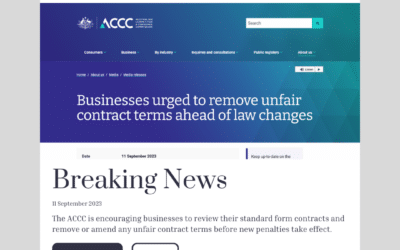
Before declaring bankruptcy, what are the consequences?
Declaring yourself bankrupt is a significant move, so understanding the consequences of doing so is important.
Although bankruptcy can provide relief if you are unable to repay your debts, there are various negative consequences. Below, we outline the rights and obligations that you need to consider.
Positive Consequences
Bankruptcy is a process which provides protection to people who are no longer able to pay their debts as they fall due. It provides:
- Release from debts. You will essentially be released from most provable debts incurred before the bankruptcy.
- Relief from harassment, litigation and execution from creditors. All communications are transferred to your nominated trustee.
- Legal proceedings. If legal proceedings against you have commenced, the proceedings can only continue through the trustee (very personal claims are exempt, e.g. personal injury or death of a family member claims).
Negative Consequences
The rules and obligations that apply when you declare bankruptcy are outlined below.
- Property ownership. Bankruptcy means losing your property. It will be vested in the trustee, who will then nominate to sell your property in order to repay your creditors.
- Recorded in a public register. Your bankruptcy will be recorded in the National Personal Insolvency Index (NPII) — a permanent record of bankruptcies since 1928.
- Travelling restrictions. You must be granted permission from the trustee for you to leave the country and go overseas.
- Restrictions on obtaining credit. If you apply to borrow funds from a creditor, you may not borrow more than $5,778 (2019; subject to changes in the National Insolvency Index) without informing the credit provider of your bankruptcy.
- Obligations to comply. You must assist the trustee in winding up your estate. This includes producing relevant documents, undergoing an examination of your financial affairs and notifying changes to earnings and income. If you do not comply with these duties, you may incur penalties from the court such as an extension of your bankruptcy.
- Limitations on involvement in a company. According to the Corporations Act 2001, you are prohibited from being a director, promoter or manager of a company without permission from the court.
- Limitations in employment opportunities. Further restrictions apply in terms of certain occupations — for example, you cannot sit in Parliament. There are also industry restrictions in professions such as barristers, solicitors, chartered accountants, security licence holders and tradespeople.
Declaring yourself bankrupt can be a complex and difficult task, so understanding bankruptcy and its consequences will make it a smoother process. It is advised that you discuss with a specialist lawyer about whether or not to go through with it.
If you have questions about bankruptcy, whether for yourself or your company, please contact our friendly team.
Important disclaimer: The material contained in this publication is of a general nature only and it is not, nor is intended to be legal advice. If you wish to take any action based on the content of this publication, we recommend that you seek professional legal advice.

Book Your Appointment
Related Articles
Privilege Under Pressure: Insights from the Optus Case
A Shifting Legal Landscape Today's businesses are under constant threat from cyber attacks, making it increasingly important to understand how they can legally protect their private conversations. Legal professional privilege is a fundamental rule that keeps the...
Ticketek’s $500K Fine: A Legal Perspective on Email Compliance
In the constantly changing world of digital communication, email marketing remains a vital way for businesses to connect with their audience. However, it's crucial to manage this tool with care and attention to legal obligations. The Australian Communications and...
Navigating the Waters of Unfair Contract Terms in Australia
As a small business owner in Australia, you might have come across the recent updates to the Australian Consumer Law regarding unfair contract terms. If it seems a bit complex, don't worry! We're here to simplify it for you in clear terms. Unfair Contract...




